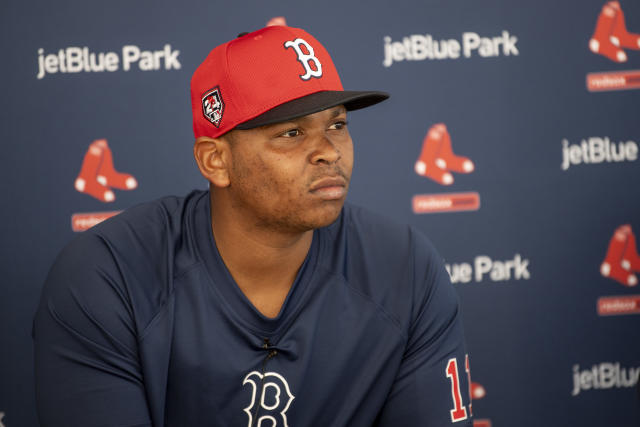
Breaking: Rafael Devers Rejects $400 Million Offer Due to “Woke Ideologies”

In a shocking turn of events, star MLB player Rafael Devers has reportedly turned down a massive $400 million contract offer, citing disagreements with what he describes as “woke ideologies” infiltrating the sport. The decision has sent shockwaves through the baseball community and beyond, as Devers’ rejection of such a substantial offer is nearly unprecedented.
The Offer
The $400 million offer, which was rumored to have been made by the Boston Red Sox, was intended to secure Devers as the cornerstone of the franchise for the foreseeable future. Devers, who has been one of the league’s top performers, would have joined the exclusive club of athletes with contracts in the half-billion-dollar range, a testament to his talent and market value.
However, the 27-year-old third baseman, known for his powerful hitting and defensive prowess, has decided to walk away from the deal. While many athletes dream of such an offer, Devers has reportedly chosen to prioritize his principles over the financial windfall.
The Reason: “Woke Ideologies”
Devers’ reasoning for rejecting the offer revolves around his concerns with what he calls “woke ideologies” that have become increasingly prevalent in professional sports. Though Devers has not elaborated in detail about his objections, his comments suggest a growing frustration among some athletes with the intersection of sports, politics, and social issues.
“Woke ideologies” typically refer to progressive social movements that advocate for social justice, equality, and inclusivity. These movements have gained significant traction in recent years, especially within professional sports, where players and organizations have taken public stances on issues such as racial inequality, LGBTQ+ rights, and gender equity.
Devers’ stance indicates a discomfort with these developments. He may feel that sports should remain a space focused on competition and entertainment, free from the broader social and political discussions that have increasingly permeated the industry.
The Reaction
The response to Devers’ decision has been mixed. Some fans and commentators have applauded him for standing up for his beliefs, arguing that he has every right to prioritize his personal values over financial gain. They see his decision as a bold statement against the politicization of sports, which they believe should remain apolitical.
On the other hand, critics have lambasted Devers, accusing him of being out of touch with the realities of the modern world. They argue that athletes, given their platforms, have a responsibility to use their influence to advocate for positive change and that dismissing these movements as “woke ideologies” undermines the progress made in recent years.
What’s Next for Devers?
With the $400 million offer off the table, Devers’ future in baseball is uncertain. He remains a free agent, and while his talent ensures that he will have no shortage of suitors, it is unclear whether other teams will be willing to meet his financial demands or accommodate his stance on social issues.
Devers’ decision also raises broader questions about the relationship between athletes and social movements. As sports continue to serve as a battleground for broader cultural and political issues, the divide between players who embrace these roles and those who resist them may only deepen.
In the meantime, fans and pundits alike will be watching closely to see where Devers lands next and how this saga unfolds in the context of the ever-evolving landscape of professional sports.
Leave a Reply